If ye love wealth better than liberty, the tranquility of servitude than the animated contest of freedom – go home from us in peace. We ask not your counsels or arms. Crouch down and lick the hands which feed you. May your chains sit lightly upon you, and may posterity forget that you were our countrymen!
—Samuel Adams, in a speech delivered at the State House in Pennsylvania on August 1, 1776—
Key point: In 2019, America needs a renewed understanding of authentic liberty—what it means and what it requires. Americans also need a renewed appreciation for it—and how rare it is in the world. Liberty, you see, isn’t the norm, but the exception. Why? Because without the underpinnings of an understanding of right and wrong, absolute truth, and morality, liberty quickly deteriorates into chaos. The signers of the Declaration of Independence give us a model for securing and maintaining liberty, not just in the principles they upheld, but also in how they upheld them. We need to recapture the Spirit of ’76!
This article is presented against the backdrop of a series of articles titled “Principles of Liberty.”
As I have researched and written in recent days about the principles of liberty embedded in the Declaration of Independence, I have come to realize that the United States of America became free, strong, productive, and a force for good in the world not just because of the ideals that the Founding Fathers upheld in and through the Declaration of Independence and other founding documents. It did so also because of the signers’ own commitment to the cause of liberty and their efforts to pass their priorities on to future generations. Our forebears put everything on the line for American independence and liberty, and their sacrifices were great.
If we have any hope of seeing our efforts to return America to its founding principles, we must not only uphold the ideals they promoted, but also be as faithful in our efforts to preserve and advance liberty.
Why were they so committed?
The last statement in the Declaration of Independence helps us to understand. It reads, “And for the support of this Declaration, with a firm reliance on the protection of Divine providence, we mutually pledge to each other our Lives, our Fortunes, and our sacred Honor.”
And for the support of this Declaration, with a firm reliance on the protection of Divine providence, we mutually pledge to each other our Lives, our Fortunes, and our sacred Honor.
—the 56 signers of the Declaration of Independence, as expressed in the document itself—
First, they really believed in the ideals of liberty and freedom the Declaration of Independence affirmed.
Second, they understood not only that liberty was worth more than security, but also that the promise of security could seduce people and compel them make the foolish choice of forfeiting their liberty for security. Read again the opening quote for this post from Founding Father Samuel Adams.
Third, understanding that these tenets made freedom possible and that they were bigger than themselves, the signers were willing to pledge their lives to secure and preserve them.
Fourth, the signers were willing to put their material resources and wealth on the line as well.
Fifth, they pledged their honor. These were men of integrity who were willing to stand together, shoulder to shoulder, to oppose tyranny.
Sixth, they realized their stand would have a greater impact as they stood together. Accordingly, they mutually pledged all they had and all they were “for the support of this Declaration.” We will see this emphasis momentarily in a humorous observation from Ben Franklin.
Seventh, they stood “with a firm reliance on the protection of Divine providence.” We noted in a previous post that even though we cannot say that absolutely all the signers were Christians, most were. And practically all, if not all, held a biblical worldview. In fact, it was this worldview that enabled them to see the self-evident truths the Declaration affirmed with stark clarity.
Eighth, knowing there were no guarantees other than the fact they would be executed for treason if the colonies lost the war, the signers were willing to take great risks for a high, noble, and righteous cause.

Ninth, they were men of courage. Founding Father Roger Sherman of Connecticut, a signer of the Declaration of Independence, said this: “Sad will be the day when the American people forget their traditions and their history, and so longer remember that the country they love, the institutions they cherish, and the freedom they hope to preserve, were born from the throes of armed resistance to tyranny, and nursed in the rugged arms of fearless men.”
Yes, the Founders were men who acted as men, and they did so without ever ceasing to be gentlemen. Their contribution to the world totally blows apart the modern and politically correct idea that masculinity is inherently toxic. It isn’t.
Tenth, they were unashamed. This truth is evident in this clip from an episode of the radio series “Makers of History.” The program, which spotlights the drafting and signing of the Declaration of Independence, can be downloaded from this page.
Narrator:
On July 2, 1776, the Second Continental Congress adopted Richard Henry Lee’s Resolution of Independence. Two days later, on July 4, Jefferson’s Declaration was adopted. It was not until August 2, 1776, however, that the Great Document was signed. We go now to the hall where the Congress is meeting on August 2.
John Hancock
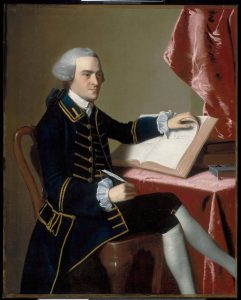
Gentlemen of the Second Continental Congress, the Declaration of Independence is ready for your signatures. You have all read it. It has been adopted by your unanimous vote. The quill and the ink await your hands. Let there be no further delay.
applause
Here. I shall write my own name, John Hancock, in letters so large the King of England can read it across the ocean without his spectacles.
laughter
sound of quill against parchment
Benjamin Franklin, your signature. And let me remind you, sir, that you are committing an act of treason against His Majesty, George III.
Benjamin Franklin
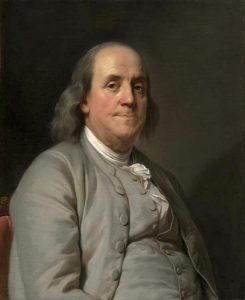
Well my friend, we must hang together or we shall hang separately!
laughter
sound of quill against parchment
John Hancock
Charles Carroll of Maryland, your signature, sir.
Charles Carroll
And I am proud to affix it, John Hancock.
John Hancock
You’re safe enough in signing. There are so many Carrolls the British will not know which one of them is Charles Carroll.
Charles Carroll
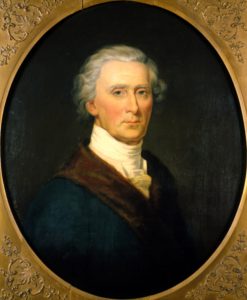
Then look! I write the words Charles Carroll of Carrollton, so there can be no mistake about my identity.
sound of quill against parchment
applause
We do not know if the details of Charles Carroll’s signing the Declaration were as this radio program portrays them, but “we do know that Charles Carroll did in fact add ‘of Carrollton’ to his name and that for this tremendously wealthy signer – who with his signature pledged his life, fortune and sacred honor – there would be no hiding.”
Now, do not misunderstand. I do not believe in being foolish with regard to declaring what one believes. I know of a gentleman who uses a pseudonym for a Twitter handle because he knows he might be fired from his job if his employer knew of his convictions. Even so, this fact is not keeping him from telling the world what he thinks. We must be shrewd and wise, but we also must make sure we do not allow ourselves to be browbeaten into silence or rendered mute because we are afraid of the cost of expressing ourselves freely.
Interestingly, Charles Carroll was the last of the signers of the Declaration to pass away. He died on November 14, 1832. The nation he had helped found had celebrated its 56th birthday during the previous July, and Carroll himself had celebrated his 95th birthday in September. Watch and listen to Tim Barton of Wallbuilders tell how, on the 50th anniversary of America’s birth, the nation turned to Carroll to learn what insights he might have and share regarding the Declaration.
You’ll want to remember what Charles Carroll said. He wrote these comments on August 2, 1826, exactly fifty years after affixing his name and “address” to the Declaration of Independence.
I do hereby recommend to the present and future generations the principles of that important document as the best earthly inheritance their ancestors could bequeath to them, and pray that the civil and religious liberties they have secured to my country may be perpetuated to remotest posterity and extended to the whole family of man.
—Charles Carroll of Carrollton—
Although he was the last surviving signer of the Declaration, Charles Carroll’s statement showcases what must have been an eleventh quality among the signers. They were thankful. Grateful for the success they saw, of course; but I imagine they also were thankful to have lived in strategic and pivotal time in history.
Furthermore, they were thankful for the new nation’s affirmation of Christianity. Robert Treat Paine, a signer of the Declaration from Massachusetts, wrote, “I desire to bless and praise the name of God most high for appointing me my birth in a land of Gospel Light where the glorious tidings of a Savior and of pardon and salvation through Him have been continually sounding in mine ears.”
Surely they also were glad they had had a part in promoting the noble cause of liberty. Liberty and freedom are intangible, invisible qualities; but they are real, and they are greater in value than tangible assets like financial and material resources.
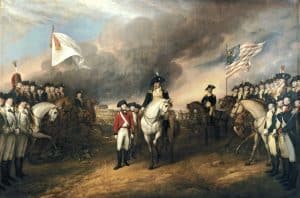
This leads to the twelfth and final quality on our list, even though it is far from exhaustive. The signers had the discernment they needed to look beyond their own situations and lives to see the value of investing their lives and their wealth in a cause that ultimately is worth far more than either—and both. We alluded to this discernment in item three, but here we state it explicitly. We need the kind of wisdom the Founders exercised and applied, just as much as they needed it then.
Especially for us (and perhaps this was true to an extent for the Founders as well), the discernment we need involves sorting through rhetoric that is both emotionally appealing and misleading. It requires us to recognize that compassion and truth go together. It demands that we use our heads and not merely follow our hearts.
One example is in the area of rights, which we discussed in principle 5 of part 3 of our series on liberty’s ideals. We need to be able to distinguish negative rights, which are consistent with true freedom, from positive ones. Why? Because the promotion of positive “rights” breeds government oppression. This is just one example. Many more exist. In the modern war over ideas, discernment is essential.
Our Era Requires of Us Many of the Same Things the Era of the Signers Required of Them
Read again these words of Charles Carroll:
I do hereby recommend to the present and future generations the principles of that important document as the best earthly inheritance their ancestors could bequeath to them.
Because Charles Carroll refers to the principles embodied in the Declaration of Independence as “the best earthly inheritance” (emphasis added) that can can be passed on to future generations, I agree. The gospel of Christ and the relationship with God to which it points are eternal; and these, of course, supersede liberties that can last only as long as one is able to draw breath. Yet liberty as highlighted in the Declaration of Independence is tied to the principles of the gospel and God’s Word. This is emphasized so strongly in the inscription chosen for the Liberty Bell—Leviticus 25:10. This verse states, “Proclaim Liberty through all the land unto all the inhabitants thereof.” Moreover, it is no accident that Paul wrote in 2 Corinthians 3:17, “Where the Spirit of the Lord is, there is liberty.”
We are back, therefore, to the Christian faith held by most of the Founders and the Christian, or biblical, worldview held by nearly all of them.
Again, today, to recover authentic liberty in America, we need not only to uphold the tenets of liberty the Founders upheld, but also to do so with the same tenacity and conviction they demonstrated.
Recapping
Let’s review.
-
- The signers of the Declaration of Independence believed wholeheartedly in the principles of liberty the Declaration upheld.
- They regarded liberty as worth more than security.
- They willingly pledged their lives for the cause of ordered freedom.
- They pledged their material resources as well.
- They were men of integrity who meant what they said and said what they meant. To them, honor was priceless.
- They stood together—shoulder to shoulder against tyranny and oppression.
- Holding to a biblical worldview, they trusted God to bless their efforts and the outcome of the conflicts in which they had to engage.
- The signers were willing to take risks—even huge ones—to advance their cause.
- Underlying the signers’ willingness to take risks was their courage and their acting as men.
- They were unashamed of their beliefs and their efforts to promote them.
- They were grateful men.
- The signers had, and exercised, godly discernment.
Let’s seek to cultivate these qualities as we pray and work to bring about renewal in America. And let’s remember we can’t do it alone. We must have, as the Founders would have said, the help of Providence. Accordingly, let’s rely on the Lord to enable us to plow, plant, and water the fields so that He can bring about the renewal we long for and so desperately need.
In 2019 and beyond, let’s recapture the Sprit of ’76!
Copyright 2019 by B. Nathaniel Sullivan. All rights reserved.
Unless otherwise noted, Scripture quotations cited in this article are from the King James Version.
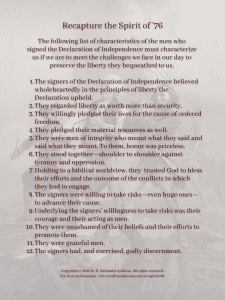
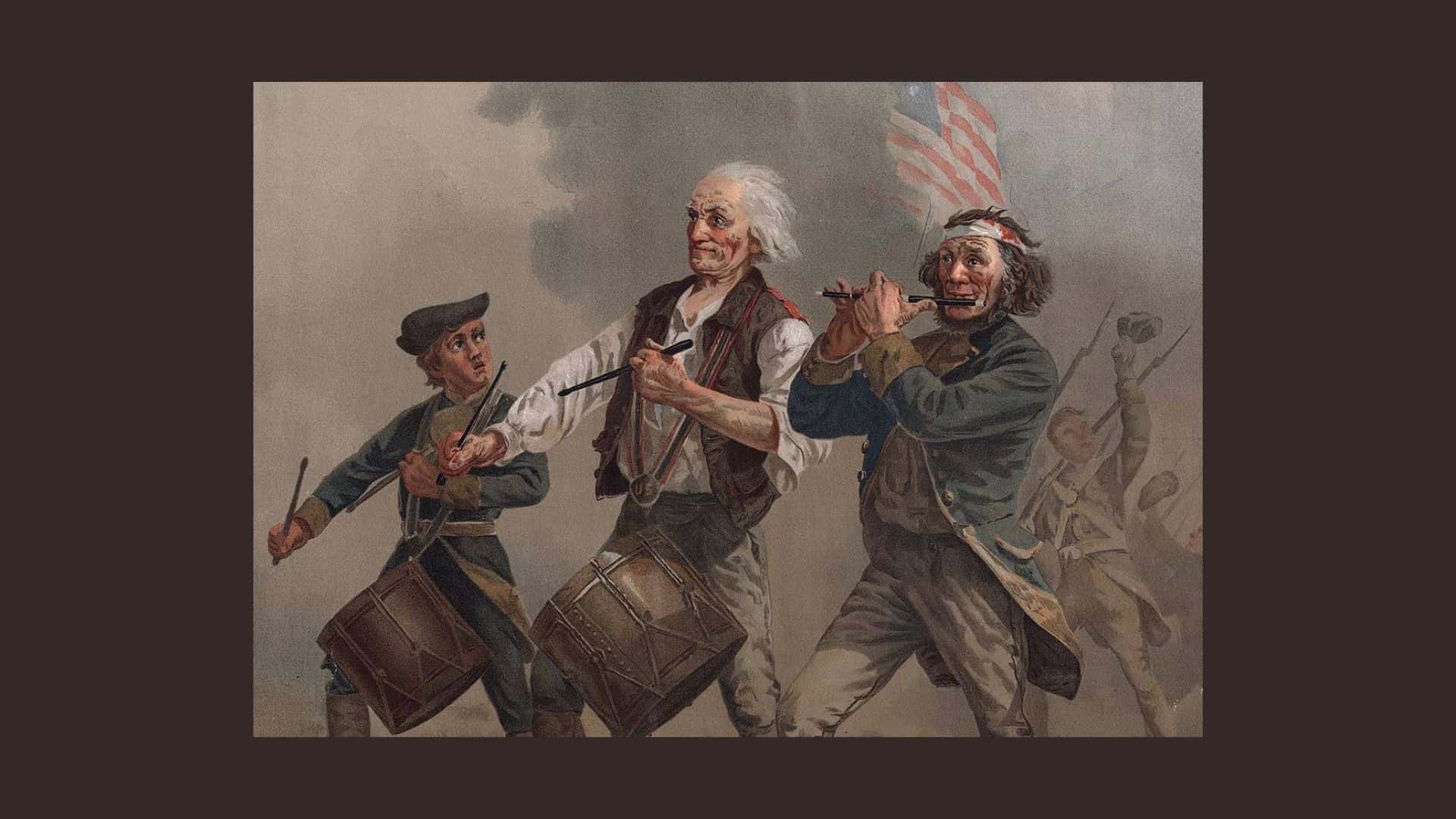
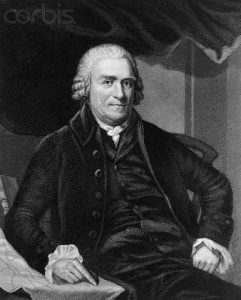

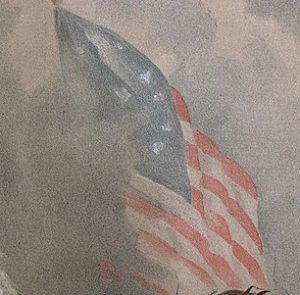
Thank you for the education. I truly appreciate finding something that makes sense on this www.
Thank you, Barbara! Blessings to you! Following the examples set by the Founders, with God’s help, we can turn America around! —B. Nathaniel Sullivan